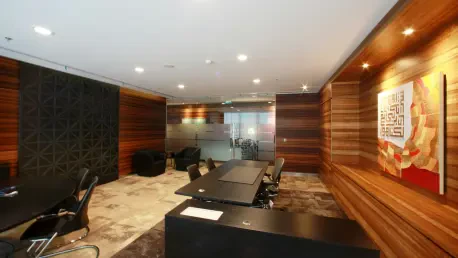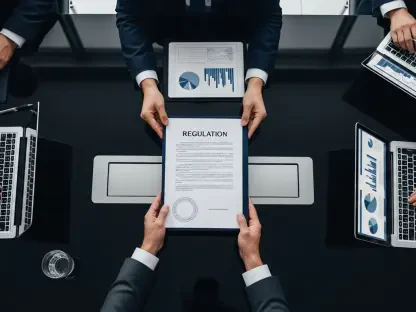In today’s competitive world of interior design, a successful Studio Manager is crucial for maintaining efficiency and client satisfaction in a firm, serving as the linchpin that holds the operations together. As firms aim to deliver unique, tailored environments to their clientele, the Studio Manager’s multifaceted role involves overseeing various projects, managing administrative tasks, and ensuring seamless collaboration within the team. This article explores the key qualities and duties that empower a proficient Studio Manager to facilitate such outcomes. By offering an in-depth look at their responsibilities and skills, insights into this dynamic profession are provided.
Managing Operations Efficiently
Organizational Skills
A Studio Manager at an interior design firm must exhibit remarkable organizational prowess, which is paramount to managing the intricate operations that accompany the creative aspects of design. Their adeptness at implementing structured plans ensures the smooth orchestration of procurement processes, involving the full spectrum of back-end activities to support the forefront creativity of a firm. Maintaining detailed records is not merely a task but a strategic approach to managing numerous clients’ demands and projects simultaneously. Proper organization provides the manager with a bird’s-eye view of all ongoing projects, enabling timely execution without delays. Their management of diverse tasks is reminiscent of a conductor’s control over a symphony, each aspect contributing harmoniously to the complete process.
Administrative Responsibilities
Administrative responsibilities form the backbone of the operational framework within a design studio. Studio Managers must navigate communications with various vendors and manage procurement processes meticulously, ensuring every order aligns with the specifications. Prompt payment and smooth logistical arrangements become critical in meeting deadlines and fulfilling client expectations. Their role demands keen attention to compliance with building-specific requirements, including managing Certificates of Insurance, essential to safeguard against potential liabilities and operational hindrances. By ensuring that administrative aspects are handled efficiently, Studio Managers enable the design team to concentrate fully on their creative expertise, allowing ideas to flourish unhindered by operation-related distractions.
Building Collaborative Teams
Communication Skills
Communication is a pivotal skill for Studio Managers as they foster collaboration within the team and with external stakeholders. Mastering the art of clear articulation and active listening is vital in executing projects successfully. The ability to convey ideas effectively, translate technicalities into tangible strategies, and mediate between client expectations and design possibilities all hinge upon robust communication capabilities. Studio Managers must ensure that every stakeholder—whether designers, vendors, or clients—understands their role and contributes effectively to the collective vision of the project. Through adept communication, they bridge gaps in knowledge and expectations, nurturing a harmonious work environment that is conducive to creativity and productivity.
Teamwork and Autonomy
The delicate equilibrium between teamwork and autonomy presents one of the more nuanced challenges of the Studio Manager’s role. While fostering collaboration among team members, a Studio Manager also empowers individuals with the autonomy needed to drive initiatives independently. This balance is integral to encouraging creative innovation among designers, allowing individual strengths to shine while maintaining alignment with the firm’s vision. Effective managers create a culture where teamwork is cherished, yet personal growth through independent task ownership is also advocated. By blending cooperative efforts with personal accountability, Studio Managers enhance operational dynamics, ensuring each project proceeds under unified objectives while allowing space for personal input and creative flair.
Understanding Client Needs
Client Engagement
Engagement with clients emerges as a cornerstone of a Studio Manager’s responsibilities, requiring refined skills in understanding diverse client preferences and personalities. Establishing a rapport grounded in trust enables the Studio Manager to effectively translate clients’ visions into practical design outcomes. With precision, Studio Managers identify the intricate details driving a client’s unique aspirations, capturing their inspirations that range from aesthetic desires to functional necessities. This understanding is pivotal in crafting environments that not only satisfy clients’ explicit requests but also resonate with their intrinsic lifestyle needs and personalities. By acting as interpreters of client dreams, Studio Managers ensure designs genuinely reflect and enhance the client experience.
Tailoring Spaces to Enhance Lifestyle
Design extends beyond mere aesthetic appeal; it encapsulates elements that elevate lifestyle and promote well-being. Studio Managers play a critical role in tailoring spaces that cater to these multidimensional needs, harmonizing luxurious features with pragmatic functionalities. The success of such endeavors lies in understanding how design impacts daily living and capturing clients’ specific lifestyle aspirations within the fabric of their environments. Integrating materials, colors, and layouts that resonate with personal tastes creates spaces that do more than look good; they foster positive emotions and a heightened sense of comfort and belonging. This approach transforms spaces from blank canvases into personal sanctuaries that augment overall client satisfaction and quality of life.
Upholding Design Excellence
Focus on Quality
Maintaining high-quality standards within a design firm is crucial, and Studio Managers serve as gatekeepers to ensure excellence is upheld consistently across all projects. Their collaboration with the firm’s Principal is integral, guaranteeing each design project adheres to the company’s ethos, blending timeless elegance with the vibrancy of contemporary styles. Recognizing that quality transcends mere aesthetic appeal, a Studio Manager engages in rigorous assessments of design integrity and durability while considering clients’ budget constraints. Upholding quality involves not only technical precision but also an unwavering commitment to exceeding client expectations, ensuring the design aligns with the envisioned outcome and the lofty standards synonymous with the firm’s reputation.
Global Inspirations
In the highly competitive arena of interior design, the role of a Studio Manager is indispensable for ensuring both operational efficiency and client satisfaction within a firm. Acting as the pivotal force that harmonizes daily activities, the Studio Manager is integral in shaping and executing the vision of personalized spaces that meet client expectations. Their responsibilities are diverse, including overseeing multiple projects, handling key administrative duties, and fostering effective teamwork among creatives and service providers. This article delves into the particular traits and responsibilities that define an effective Studio Manager, illustrating how these elements empower them to drive successful outcomes. By examining their multifaceted duties and diverse skill set, we gain a deeper understanding of what makes this profession essential to the seamless functioning of design studios, thus supporting their ability to deliver innovative, bespoke solutions to clients in an ever-evolving industry.









